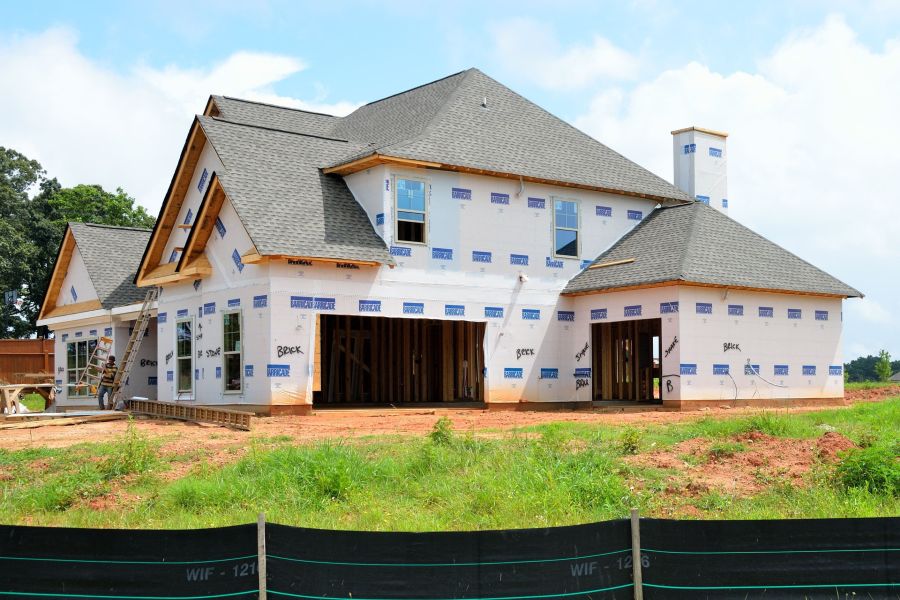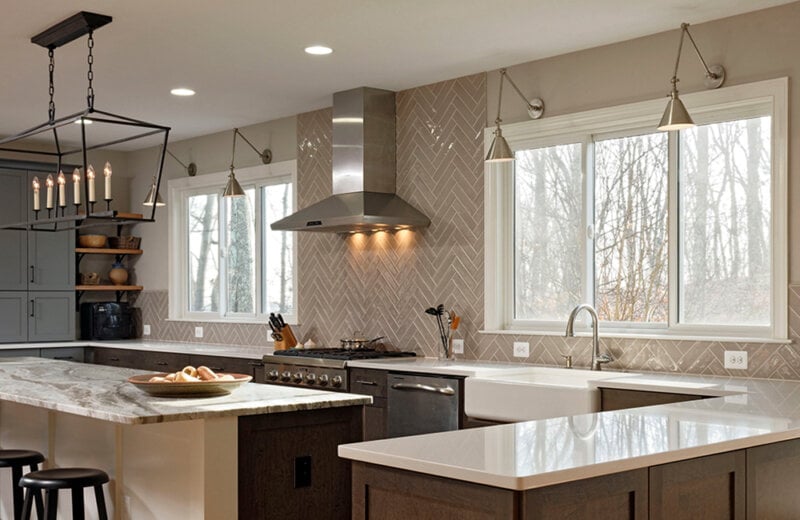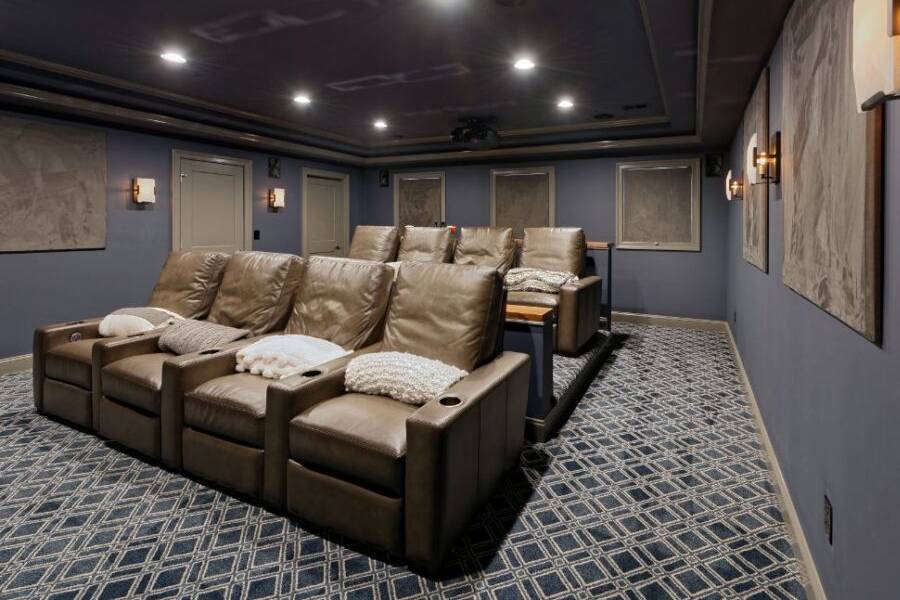14 Most Effective Steps to Beef Up Your Home Security
According to the Federal Bureau of Investigation*, when it comes to our homes, home burglaries are the most common threats. In fact, it’s estimated that a break-in occurs nearly every 20 seconds, or approximately 4,150* homes every day.
Installing even the most basic security measures in your home can be one of the most effective safeguards to ensuring your property is protected. A report published by the University of North Carolina found that the mere presence of a home security system deterred potential burglars and influenced their decision to target another home.
Improving the security in and around your home is key to ensuring you and your family do not become part of such startling statistics. To avoid becoming a victim of crime, add an extra (or several) layers of security measures with the tips below.
1. Upgrade entryways
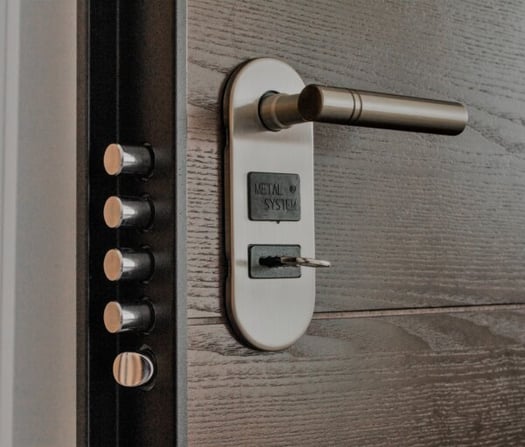 Windows and doors are the key gateways into your home. And when these entry points aren’t strengthened or reinforced, preventing break-ins becomes that much more difficult. To deter would-be burglars, start with this home security feature.
Windows and doors are the key gateways into your home. And when these entry points aren’t strengthened or reinforced, preventing break-ins becomes that much more difficult. To deter would-be burglars, start with this home security feature.
Inspect all exterior doors and windows. If your budget permits, consider installing solid exterior doors and windows. Installing a solid, good quality hardwood front door and double- or triple-pane windows is a good way to strengthen your home’s perimeter and resist even the most determined burglar.
2. Replace weak locks
While you’re reinforcing doors and windows, be sure to strengthen your home’s locks and lockset plates. Upgrading your locks to deadbolts and equipping windows with contacts and sensors can provide optimal protection if either entryway is forced open.
Be sure to get a quality Grade 1 or Grade 2 deadbolt to minimize vulnerable spots in your perimeter.
3. Install outdoor lights
Besides enhancing the nighttime aesthetics of your home’s exterior, outdoor lights can serve to deter potential burglars. As many intruders prefer to work in the dark, installing outdoor lights throughout your home increases visibility and limits the dark spaces that potential burglars can hide in.
Many burglars will flee at the sight of activated and motion-sensitive outdoor lights.
4. Install timers
Similarly, burglars are attracted to homes that appear unoccupied. So if you and your family are away from the house for long periods of time or go on holiday periodically, equipping your light system with timers or a motion-sensitive system will give the impression that the home is currently occupied.
While the latter is better suited for exterior lights, timers can be employed both for indoor and outdoor lights as well as other home appliances such as televisions or radios.
5. Maintain appearances
Maintaining a certain degree of upkeep will give the appearance that your home is safely secure from any potential intruders. Maintaining the appearance of your home can be done in several ways, including:
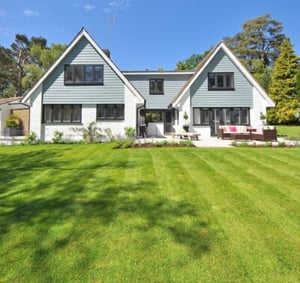
- Securing in-window air conditioning systems
- Adding security signs (yard signs and window decals)
- Removing flyers from your yard or doorstep
- Maintaining a neat and trimmed landscape
- Taking trash to the curb and bringing them back once emptied
- Secure tools and ladders
6. Get to know your neighbors
To further improve the upkeep and maintain the illusion that your home is occupied while family members are away, get to know your neighbors. Your neighbors will play a key role in ensuring your house continues to look lived-in while you and your family are away.
A trusted neighbor and a secure neighborhood are effective deterrents for potential thieves as everyone gets involved in ensuring no suspicious activity occurs.
7. Remove the “hidden” house key
As one of the oldest tricks in the book, hiding a spare key under a pot or mat by the front door simply won’t cut it as a security measure. Every burglar knows this age-old trick and leaving “hidden” house keys lying around simply increases the vulnerability of your home.
Instead of leaving a spare house key in a pot or mat where it can be easily discovered, consider buying a lockbox. One equipped with a security combination (that only you and your family will know) is a safer alternative to a “hidden” key in the event you lose or forget your keys.
8. Keep valuables out of sight
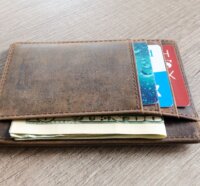 Your home opens its front to door many strangers. From political canvassers and food delivery guys to “sketchy” salesmen, your front door (and at times, front windows) serves as a gateway or view into your home.
Your home opens its front to door many strangers. From political canvassers and food delivery guys to “sketchy” salesmen, your front door (and at times, front windows) serves as a gateway or view into your home.
To avoid tempting would-be intruders, place articles of value out of plain sight. This can include cash, jewelry or valuable family heirlooms.
Anything of value that is visible from the street can be a potential target for thieves. When stashing valuables, consider putting them away in unlikely places such as large envelopes or select containers.
9. Find information on local resources
Many neighborhoods have local resources available to improve your home’s security. Neighborhood watch programs and your local police department can provide added security to your home. Many local police departments will even work with homeowners to ensure their homes are secure.
Even something as simple as organizing a neighborhood get-together or cookout can encourage people around the neighborhood to bond together and stay alert for suspicious activities.
 10. Consider getting a pet
10. Consider getting a pet
As burglars want to get in and out as quickly as they can, having a furry companion around may be an effective theft deterrent. And it doesn’t even have to be a large dog. Small dogs prone to barking are effective alarm systems that potential burglars would rather avoid.
Even if you don’t have a dog, have enough supporting evidence to suggest you do. This includes leaving dog bowls outside your home’s side door or placing foreboding signs like “Beware of Dog” where they can be easily spotted.
11. Agree upon a family routine
In truth, your home’s security starts with your family members. Understanding that home security must be a habit can be a no- to low-cost security measure that can deter a would-be thief.
Applying some simple rules that everyone follows can be a low-tech security feature that will improve your home’s security. Rules should include:
- Securing the home’s entryways even if everyone is home
- Don’t open the door to strangers or uninvited guests
- Make it a habit to check and lock doors and windows (particularly before bedtime)
- Use your home’s alarm system at all times, even if you’re simply going on a quick errand or visiting a next-door neighbor
12. Get a security audit
A security audit can serve to highlight vulnerable spots around your home that you may have failed to consider. Security firms will provide this service. But so will most police departments.
Having a security audit done on your home will also give you information on tips that you can use to further safeguard your home break-ins.
13. Purchase a security system
While buying a security system for your home may be a costly investment, the physical and psychological trauma prevented by having a security system justifies its considerable cost. In fact, according to Temple University, homes without security systems are three times more likely to be targeted than homes with security systems.
Home security systems also come with additional protection features such as detection alarms for fire and carbon monoxide.
14. Get insurance
If you ever do become a victim of a burglary, having homeowners insurance may help your family recoup some of its financial losses.
On top of standard homeowners insurance, be sure to opt-in for optional coverage like replacement-cost coverage or additional policies to cover expensive valuables like jewelry or family heirlooms.
Are you at risk?
Every homeowner can be a potential victim of a home break-in. But by taking necessary steps and precautions to beef up your home’s security and make your home more difficult to enter, you lower your risk and your home’s attractiveness of becoming targeted by a typical house burglary.
These are great things to think about when remodeling your home. Make sure security is a factor in your redesign. Reach out if we can help you with your home remodeling needs.
Guest Author Bio:
Michael Dunne created Safecell Security Ltd in 2001 and acquired Authorized Access in 2013. He is now Managing Director of both companies and oversees the strategic development and day to day running of the businesses. Michael has spent over 20 years in the security industry and specializes in the design, installation, maintenance and commissioning of electrical security systems such as intruder alarms, fire alarms, CCTV, warden control and access control and all physical security including key cutting, safe & lock picking, suited key systems, automated barriers & gates and shutters, throughout the North West of England.


